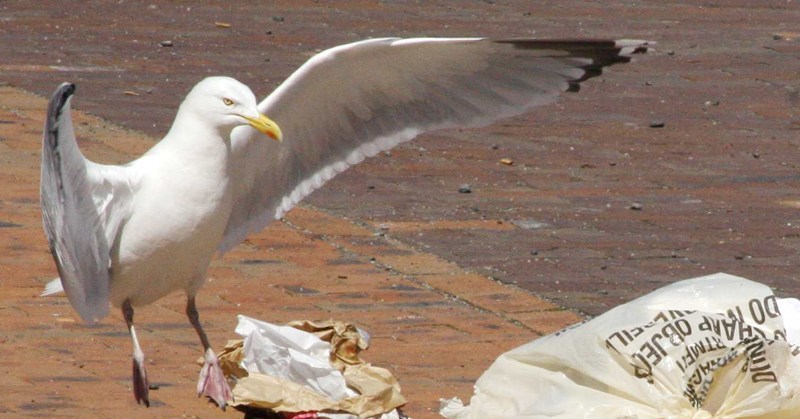Moves to reduce the number of gulls in Angus streets have been welcomed as a step in cleaning up the county’s towns and villages.
Arbroath East and Lunan councillor Donald Morrison is conscious of the town’s mixed relationship with the birds, which can be an intimidating presence just as much as a hallmark of coastal life.
He agreed with council chief executive Richard Stiff’s proposals for slant roofs on new commercial buildings and gull-proof bin bags, and that a cull should not be considered unless all other measures have failed.
Mr Morrison said: ”There can’t be a burgh or village around Angus which doesn’t experience a problem with gulls nesting, the noise or the mess, but the reality is gulls have only adapted to our society, to our environment, by picking up the discarded pizza or plundering refuse bags left in the street.”
He added: ”I noticed throughout Inverness all the litter bins had a bright yellow A4 sticker, clearly stating not to feed the gulls. This is something which should be looked at here, as it can be done in-house and is cost-effective.
”We also need to look at better communicating the message to all food and catering businesses so their customers are aware (of the consequences of their waste) and I have previously suggested some ideas.
”We can maybe also raise awareness by reminding households that throwing food scraps out for the birds will attract gulls and instead ask them to use bird feeders, available for as little as a pound.”
Councillors had called for an updated report, which led to a raft of suggestions, a continuing commitment to the authority’s nest removal scheme, better waste management and a publicity drive for district residents.
Mr Stiff’s report highlighted herring and black-backed gulls as the two species most associated with nuisance. The council estimates there are 5,000 breeding pairs of gulls in Angus, almost half of what there is thought to be in Aberdeen.
Mr Stiff’s report added: ”Available statistics do not suggest any significant worsening of the position in Angus since 2008 when seagull-related matters were last considered by the council.”
The council’s crop of control measures include the free nest removal service for domestic premises; flying of birds of prey during the breeding season in urban areas and year-round flying at the council’s landfill sites; a 30-yard radius litter-picking requirement on fast food outlets and frequent emptying of litter bins in the busiest town centre and seafront locations.
The council also holds a general licence to cull but has not used it so far and Mr Stiff suggests it will remain a last resort option.
